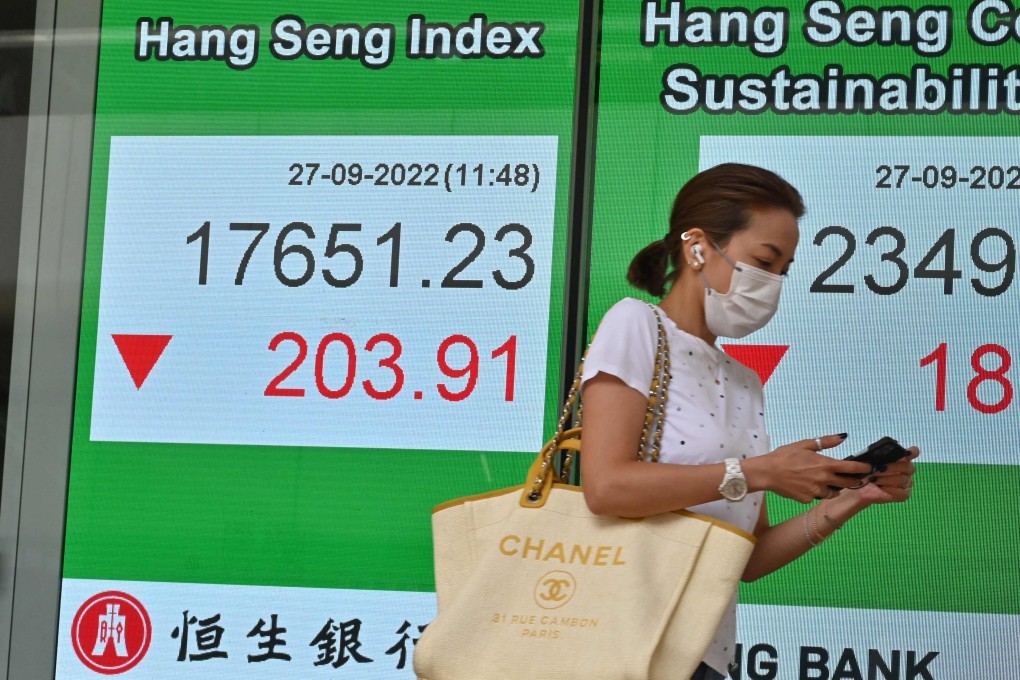Tencent, EV and property stocks slide in Hong Kong as traders focus on Fed risk before US jobs, inflation reports
- Economists predict a robust labour market despite a slight pullback in September in nonfarm payrolls report due later today
- Bets for a Fed pivot away from its aggressive tightening pace are not gathering pace after an early promise this week

The Hang Seng Index retreated 1.5 per cent to 17,740.05 on Friday, trading near the lowest level in 11 years, but gained 3 per cent for the week. The Tech Index slumped 3.3 per cent. Financial markets in mainland China, shut this week for National Day, will reopen on Monday.
Tencent dropped 2.4 per cent to HK$271.20, Alibaba Group lost 1.9 per cent to HK$81.55 and NetEase lost 2.6 per cent to HK$123.40. EV maker Li Auto sank 14.5 per cent to HK$80.85 and Nio slumped 10.6 per cent to HK$111.90. Chinese developers Longfor and Country Garden slipped 9 per cent and 6.9 per cent, respectively.
The Hang Seng Index’s 3 per cent gain this week represents the best rally since June, courtesy of a 5.9 per cent surge on Wednesday. The 73 index members gained HK$8.6 billion (US$1.1 billion) of market value this week before Friday, narrowing the losses this year to HK$4.6 trillion.
Benchmark indices dropped 0.7 per cent in Japan and 0.8 per cent in Australia, while the gauge in South Korea was down 0.2 per cent. The S&P 500 Index lost 1 per cent on Thursday, while the Nasdaq Composite declined 0.7 per cent on risk-off sentiment before key economic reports.